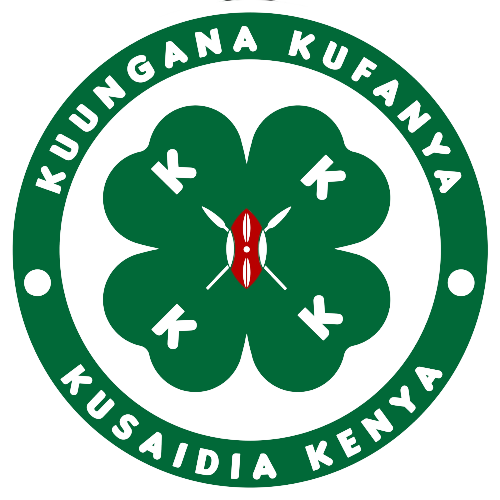These are groups of young people who learn agricultural practices by doing e.g. growing vegetables, field crops, raising small livestock, fish farming and other activities along the agriculture value chain
The 4-K Club Goals.
The goals reflect the government’s effort in reducing poverty, attaining food security, income generation, and employment creation. The five major goals of the 4-K Club programme are as follows:
- To teach the youth best agricultural practices and home management
- To give an opportunity to the youth to appreciate agriculture
- To supplement food and animal products for the family
- To develop leadership and good citizenship among the youth
- To use the youth as agents of change in terms of attitude and practices in agriculture

The 4-K Club Membership
Any girl or boy aged between 8 to 15 years in primary school qualifies to be a member of the 4-K Club. No club fees are charged, but contributions can be made, for example to buy a 4-K Club badge or inputs for their own projects.
Members meet in any suitable place for example classroom, tree shade, school farm, or any other public place.
Members plan, reflect, share experiences, tour their projects and end up with recreation activities.
They engage in sports and games with other members, visit other clubs, exchange visits, have competitions with others, hold field trips to farms, agricultural stations, agricultural shows and other agricultural institutions of interest.
Characteristics of 4-K Club
- 4-K Clubs belong to the youth and communities
- Model farmers serve as leaders
- 4-K Clubs are for both boys and girls in primary schools
- Each member should have a project at home, while the club project is located in school
- 4-K Club projects should be implemented in collaboration with Sub-County Agricultural Extension office
- Agricultural extension officers assist and advise 4-K Club leaders and members
- No dues are charged to members; however members finance their own project and club activities
- 4-K Clubs are non-political, educational programmes in agriculture and related subjects
- 4-K Club programme is implemented throughout the country and supported by the Ministry of Agriculture, Livestock, Fisheries and Cooperatives (MoALFC)
Key Features of A Successful 4-K Club
- Club meetings held regularly
- 4-K Club meetings always have a meeting agenda
- Members know how to conduct a business meeting
- Club has a recreation session at the end of each meeting
- Club officials know their responsibilities
- Club has a schedule meeting Plan prepared
- Club has a Secretary’s Book
- Each club member, local leader and Extension provider know the goals of the 4-K Club
- Each member has a 4-K Club badge
- Each member knows the meaning of the 4-K’s
- Each member knows the motto and the pledge
- Each member has a membership card
- Members attend a 4-K Club course
- Members attend other training courses
- Club has two Local Leaders of either gender
Requirements for 4-K Club Projects
- Each member should have a project
- Each member should keep a record book for individual projects
- Each member should regularly fill and update record book
- The club should have current technical Information, Education and Communication (IEC) materials for particular projects published by the Ministry of Agriculture, Livestock, Fisheries and Cooperatives (MoALFC) and other Authorities
- Extension service provider should attend meetings and assist with projects and shows
- Club should organize tours and field days to outstanding farms or agricultural technology centers
- Club should participate in 4-K Club shows
- 4-K Clubs should aim to meet at least 50% of the key features for clubs and requirement for projects to be considered successful. They also require much support from the parents of club members.
